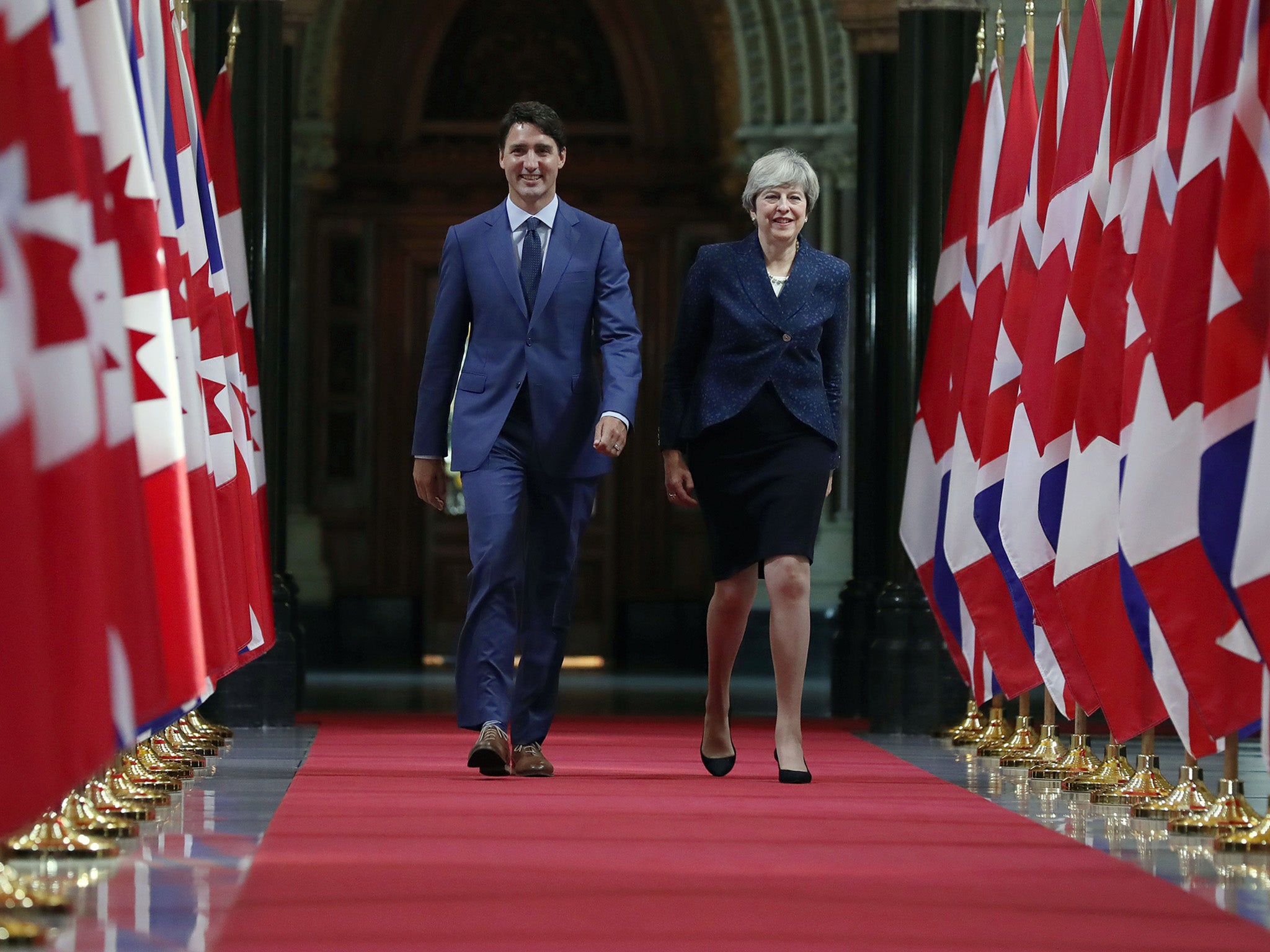Brexit: What would a Canada-style free-trade deal with EU mean for the UK economy?
What would this kind of deal entail? And what would the implications be for the UK economy?

Your support helps us to tell the story
From reproductive rights to climate change to Big Tech, The Independent is on the ground when the story is developing. Whether it's investigating the financials of Elon Musk's pro-Trump PAC or producing our latest documentary, 'The A Word', which shines a light on the American women fighting for reproductive rights, we know how important it is to parse out the facts from the messaging.
At such a critical moment in US history, we need reporters on the ground. Your donation allows us to keep sending journalists to speak to both sides of the story.
The Independent is trusted by Americans across the entire political spectrum. And unlike many other quality news outlets, we choose not to lock Americans out of our reporting and analysis with paywalls. We believe quality journalism should be available to everyone, paid for by those who can afford it.
Your support makes all the difference.EU chief Brexit negotiator Michel Barnier has said the UK is likely only to get a trade deal with the EU “along the same lines” of what the EU has concluded with Canada, South Korea and Japan.
He said that the UK’s own “red lines” on Brexit (no freedom of movement, no jurisdiction for the European Court of Justice, the right to sign independent UK trade deals with third countries, etc) ruled out anything more extensive.
But what would this kind of deal entail? And what would the implications be for the UK economy?
What sort of deals do Canada, South Korea and Japan actually have?
The EU-South Korea free-trade deal was concluded in 2009 and came into force partially in 2011. It is essentially a tariff-reduction trade deal covering goods such as cars, textiles, electronics, chemicals and some agricultural products. It is described by the EU as the bloc’s most ambitious overseas trade deal so far.
The deal also relaxes Korean foreign ownership rules in telecoms, and liberalises rules on environmental and shipping services.
The EU reached a Japan free-trade deal in principle earlier this year. This agreement also liberalises the bilateral goods trade, primarily agricultural exports. For instance, tariffs on EU beef and pork will be reduced. For EU cheese, the tariffs are eliminated altogether.
There’s also some opening up of the Japanese market to EU services firms in the telecoms and transport sectors.
The Canada-EU deal, known as CETA, provisionally came into force in September. Again, its focus is on the reduction of goods tariffs. Agricultural exports also benefit greatly.
Tariffs on cars, clothing, chemicals and machinery are also slashed to zero. On services, there is some opening up in financial services, telecoms, transport and post.
What is not covered?
The difference between these free-trade deals and the EU’s single market and customs union is immense. The goods tariffs under these various deals are reduced or sometimes eliminated, but in the customs union they disappear entirely as a matter of law.
Shipments to the EU from South Korea, Canada and Japan all have to be (and will continue to be) checked by EU customs authorities to ensure they are actually from those countries and that they conform to local safety rules, even if no tariffs are due.
Within the EU customs union, goods cross borders without any checks at all.
The single market in services also goes far beyond any liberalisation of cross-border service provision in these other trade deals. The single market specifically targets non-tariff barriers, such as local regulation rules.
The goal of the single market (although it is not yet achieved in services) is for it to be as easy for a firm to do business in any country in the entire bloc.
Single market membership also entails the rights for EU citizens from any country to work in any other country as a right. This freedom of movement does not exist (and will not exist) for EU citizens as regards access to the Canadian, Japanese and South Korean labour markets.
So what happens to our economy if Brexit means we end up with one of these deals?
Before the referendum, various teams of respected trade economists analysed the likely long-term economic impact of the UK getting a Canada-style free-trade deal versus staying in the single market and customs union.
Oxford Economics and the National Institute for Economic and Social Research estimated damage of 2 per cent of GDP, or around £1,300 per household.
However, the London School of Economics team was more pessimistic, estimating a 6.3 per cent hit to GDP by 2030 – around £4,300 per household.
The consensus view of credible trade economists is that the more significant the trade barriers that are erected between the UK and the EU (including non-tariff barriers, which are particularly important for the services firms that account for around 80 per cent of our economy), the worse the economic damage will be.
Join our commenting forum
Join thought-provoking conversations, follow other Independent readers and see their replies
Comments